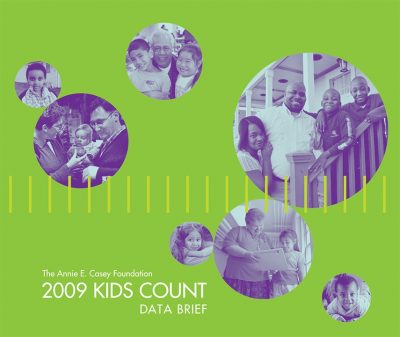
This brief provides highlights from the comprehensive 2009 KIDS COUNT Data Book. It calls on federal, state and local officials to create more robust data systems to measure and track child and family well-being and to evaluate the policies and programs that serve them. The brief also provides a summary chart of national and state data on 10 indicators that reflect a range of factors affecting child well-being.
For policymakers to effectively improve results for children, the nation needs to invest in high-quality information and data systems that can be used to inform decision making and to assess the results of programs and policies that serve vulnerable children and families. The most highly ranked states on child-being are located primarily in the New England and Northern Plains states, while the lowest ranked states are clustered in the Southeast and Southwest.
We hope you'll find value in this report. We’d love to get a little information from you, which we'll use to notify you about relevant new resources.